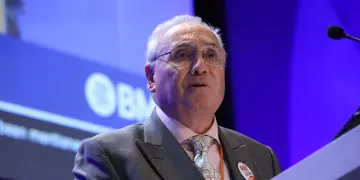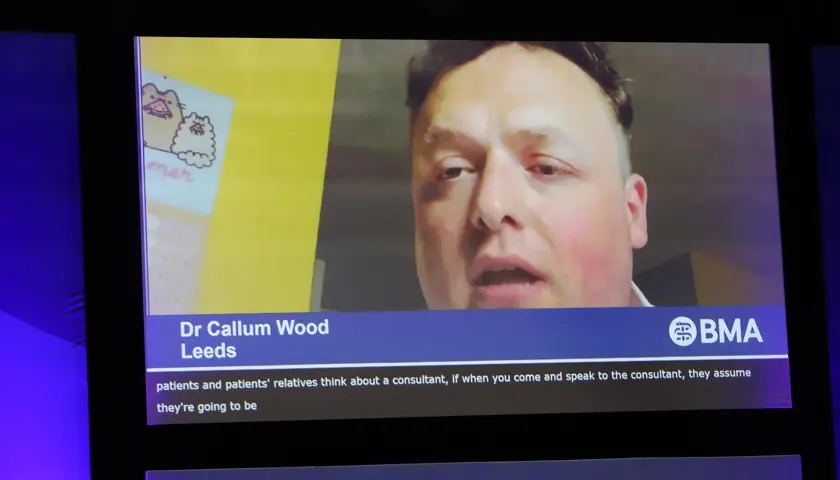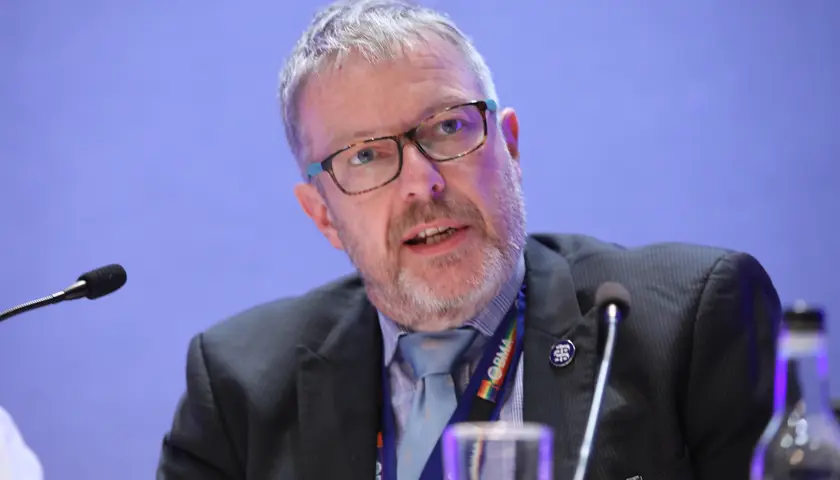Doctors back call to protect the title of ‘consultant’
Doctors back call to protect the title of ‘consultant’
Use of term by non-doctors ‘misleads the public’
BMA members have backed a move to call for an immediate halt to the use of the title ‘consultant’ by those not on the GMC specialist or GP registers.
The use of ‘consultant’ by non-doctors was compared to the issue of MAPS (medical associate practitioners) presenting themselves in a way that could be confused with a doctor.
Leeds based consultant Callum Wood, who introduced the motion to the BMA annual representative meeting, said: ‘When patients are referred to a consultant, they assume that they’ll be speaking to a doctor.
‘Like the issue of PAs (physician associates), there’s the possibility the medical establishment has been asleep while scope has crept on and on and the role of consultant has been taken away from us.
‘I don’t in any way wish to denigrate the achievements and hard work of consultant practitioners, consultant nurses or consultant radiographers, they obviously have essential skills. But when patients ask to see a consultant, or ask who is responsible for their medical care, the answer is the medical doctor.’
Dr Wood described the ‘really, really hard work’ for 15 years to gain his certificate of completion of training.
And he said the use of the title consultant by non-doctors is not only ‘complicated’ for patients, but ‘not clear’ for clinicians as well: ‘We need a word that makes it clear what a consultant is and what a consultant means.’
Retired consultant orthopaedic surgeon Richard Rawlins (pictured, top), who had called for protection of the word consultant some years ago, spoke in favour of the motion.
He said: ‘Speaking as a patient, I need to know who is treating me.
‘Why does a radiographer, or a nurse or a physio want to use the title consultant? Because essentially they want the public to regard them in the same room as consultant doctors – the title that has always been given and used by doctors.’
Misleading use
Mr Rawlins argued that NHS regulations specify that the person appointed as a consultant is a medical practitioner. ‘The use of the term consultant by others is, frankly, misleading,’ he said. ‘Patients deserve better than to be fooled by inappropriate use of the title.’
Northern Ireland associate specialist doctor Leanne Davison said she ‘applauds the sentiment of the motion’ in that ‘patients deserve to see medical practitioners’.
But she was speaking against it because she feels the motion would ‘exclude’ associate specialist and specialist doctors ‘who are by definition senior decision-making clinicians’ and could be left ‘unrecognised’.
She also warned it might ‘adversely impact’ the training of specialty trainees who, in the last year of their training, ‘act up’ as consultants.
Retired member Peter Curry added that fully registered dental practitioners may work as consultant dentists in the NHS and call themselves consultants, so warned they may be excluded too.
BMA treasurer Trevor Pickersgill said the issue ‘goes back many years’ among the BMA consultants committee which he said ‘strongly agrees with the spirit of the motion’.
He explained that previous legal advice had concluded that the term consultant is not legally protected and that there are no specific restrictions on its use, ‘notwithstanding that it’s imperative that clinicians should not misleadingly purport to be something they are not’.
He said advice from 2008 on individuals using titles that may be misleading – such as consultant in homeopathic podiatry – and the view was that they were taking their lead from their employers and would have a strong defence in any potential prosecution.
‘While there is no legal way to enforce or reserve the use of this title that does not stop consultants committee or the BMA from lobbying for the changes within this motion, it simply means that it is unlikely to be a legal avenue.
‘Nurse consultants have operated on the NHS for 25 years or so, and any suggestion that title should be removed I’m sure will be quite strongly resisted by nursing bodies – and practical progress may be difficult.’
No legal route
Dr Wood responded that the process of senior trainees acting up was ‘tightly regulated’ and would not be affected by the motion.
On specialist and associate specialist doctors, he said: ‘I completely accept the point. I hope the spirit of the debate shows we would not exclude them.’
He accepted Dr Pickersgill’s point that there was no legal route to pursue but said that, in the context of the issue around the presentation of MAPs, protecting the term consultant was ‘a possibility’ that he urged the BMA to pursue in working groups.
The motion, which passed, calls for the BMA to engage with stakeholders to end the use of the title ‘consultant’ in healthcare settings by those not on the GMC specialist or GP registers, including through amendment of job titles of those not on these registers but who are currently using the title.
It also asks for the BMA to lobby the Government to protect the use of the title in healthcare settings through legislative change and consider, including by poll of members, the alternative title ‘attending’ or other protectable titles if and/or when authorities will not protect the term ‘consultant’.
- Until September 2024, resident doctors were referred to as ‘junior doctors’ by the BMA. Articles written prior to this date reflect the terminology then in use





